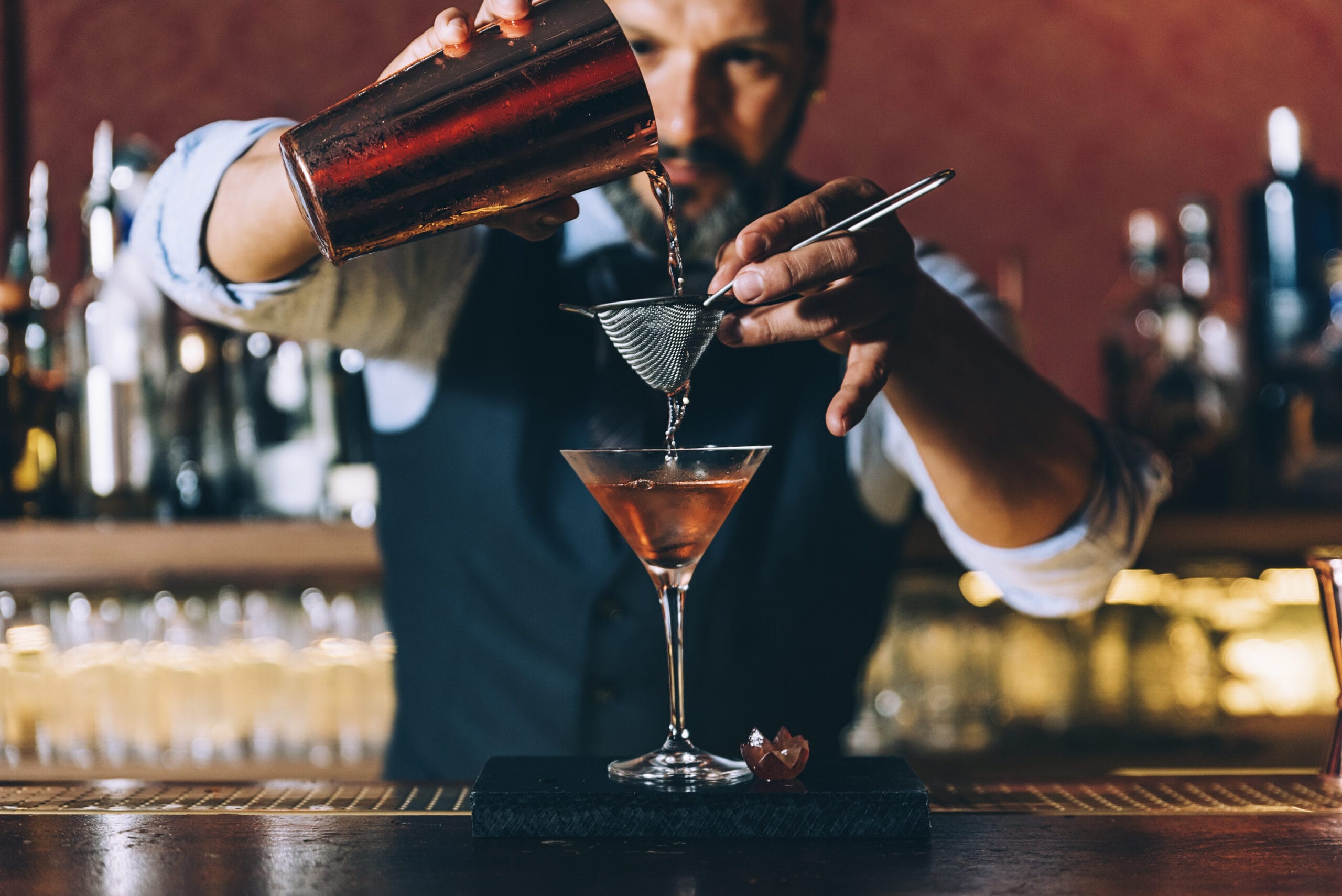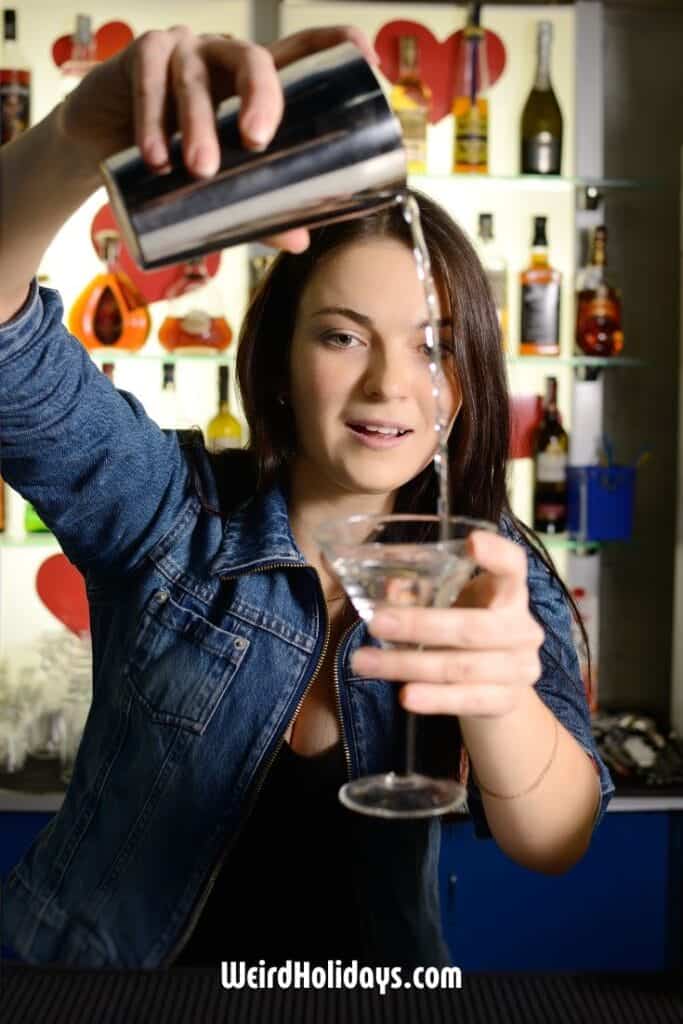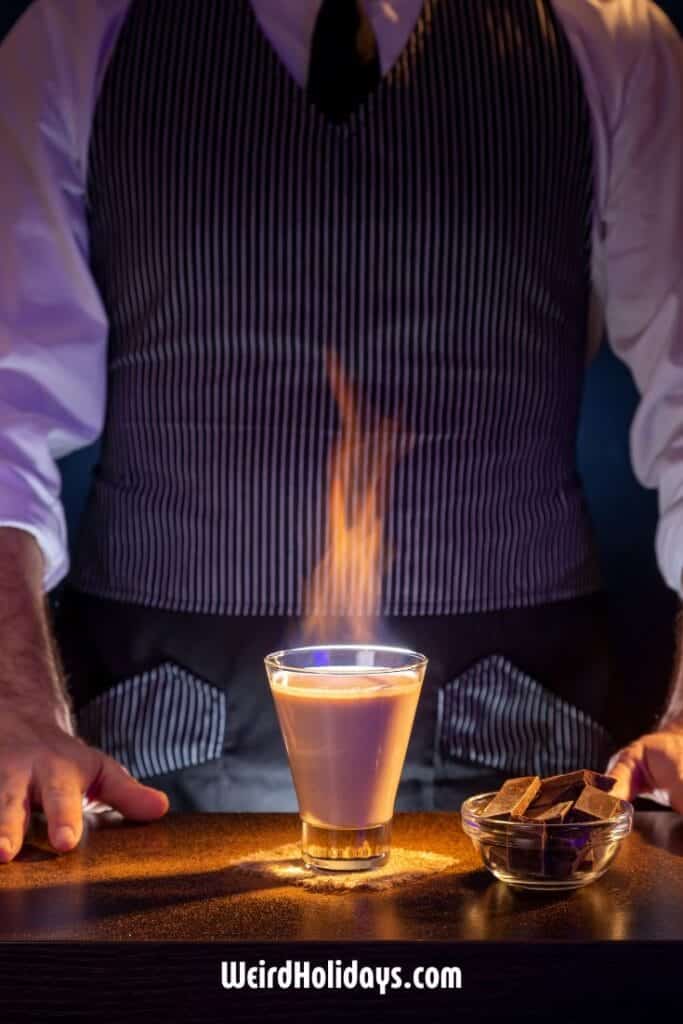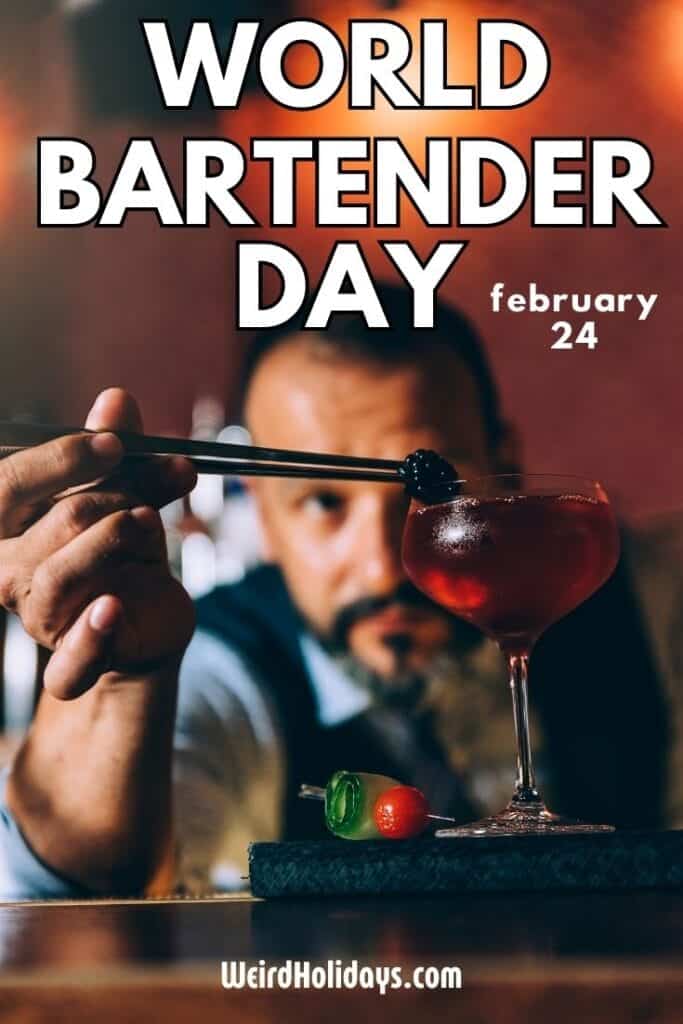World Bartender Day (February 24)

Behind every well-crafted cocktail, every perfectly poured pint, and every expertly mixed drink stands a skilled artisan—the bartender.
World Bartender Day, observed on February 24th each year, is a global celebration that pays homage to these talented individuals who elevate the drinking experience.
This unusual February holiday acknowledges their contributions to the world of beverages, their role in shaping cocktail culture, and their ability to create unforgettable moments for patrons.

When is the Holiday?
It is celebrated annually on February 24th. It’s a day dedicated to recognizing the hard work, creativity, and dedication of bartenders across the globe.
Who Invented It?
The exact origins of the holiday are unclear, but it is believed to have emerged as a way to honor the contributions of bartenders to the hospitality industry.
Some suggest that the holiday was inspired by international bartender associations that sought to highlight the skill and dedication required in the profession.
Over time, bars and restaurants across the globe embraced the concept, using the day to show appreciation for their staff and foster a sense of camaraderie within the industry.
It has since become a widely recognized occasion, with many venues hosting special events to celebrate their mixology experts.

The History of the Holiday
Bartending has a long and rich history, dating back to ancient times when innkeepers and tavern owners served drinks to travelers.
However, the modern concept of mixology gained traction in the 19th century with the publication of cocktail recipe books and the rise of sophisticated drinking establishments.
The evolution of bartending has mirrored societal changes, from the speakeasies of the Prohibition era to the rise of craft cocktail culture in recent years, showcasing the profession’s resilience and adaptability.
Today, bartending is recognized as an art form, with competitions, certifications, and specialized training programs available worldwide.

Top 5 Facts About the Holiday
- First Recorded Bartender. The world’s first known bartender, Jerry Thomas, wrote the first cocktail book in 1862, which is still referenced today.
- Record-Breaking Cocktails. The largest cocktail ever made was over 32,000 liters and was a punch-style drink created in Las Vegas.
- The Art of Flair Bartending. World Bartender Day also highlights flair bartending, where bartenders perform tricks like juggling bottles and flaming cocktails.
- Bartending in Space. NASA has studied how to make cocktails in zero gravity, proving bartending isn’t just limited to Earth.
- Cocktail Names Have Histories. Many popular cocktails, like the Margarita, have disputed origin stories that add to their intrigue and mystery.

Activities to Celebrate
- Visit Your Favorite Bar: Show support for local bartenders by visiting your favorite spot and trying their signature cocktails.
- Try DIY Mixology: Experiment with cocktail recipes at home and explore new ingredients and techniques.
- Attend a Cocktail Workshop: Many bars offer special mixology classes on this day.
- Raise a Toast: Celebrate the bartenders in your life with a heartfelt toast and generous tip.
- Share on Social Media: Use the hashtag #WorldBartenderDay to spread awareness and appreciation.

Related Recipes for the Holiday
- Classic Mojito: A refreshing mix of rum, lime, mint, sugar, and soda water.
- Jungle Bird Cocktail: A tropical delight featuring dark rum, pineapple juice, and Campari.
- Painkiller Cocktail: A Caribbean-inspired mix of rum, pineapple, orange, and coconut.
- British Shandy: A light and refreshing beer cocktail perfect for casual sipping.
**This post may contain affiliate links. As an Amazon Associate and a participant in other affiliate programs, I earn a commission on qualifying purchases.**
Links to Resources
- Mixology Bartender Kit: 14-Piece Cocktail Shaker Set. A comprehensive set includes a shaker, jigger, strainer, muddler, bar spoon, and tongs. Organized in a stylish bamboo stand. It’s perfect for both beginners and seasoned mixologists.
- The Essential Cocktail Book: A Complete Guide to Modern Drinks. An indispensable atlas of the best cocktail recipes, each fully photographed. For classic and modern drinks, whether shaken, stirred, up, or on the rocks.
- The Art of Mixology: Classic Cocktails and Curious Concoctions
This book accommodates all levels, featuring non-alcoholic drink recipes and mix drinks with alcohol favorites. Including whiskey, vodka, gin, rum, brandy, and bubbles.

Related Holidays
- National Hot Toddy Day (January 11)
- National Pina Colada Day (July 10)
- National Watermelon Day (August 3)
- National Lemon Juice Day (August 29)
Pin it!
Share this post about World Bartenders Day on Pinterest!

